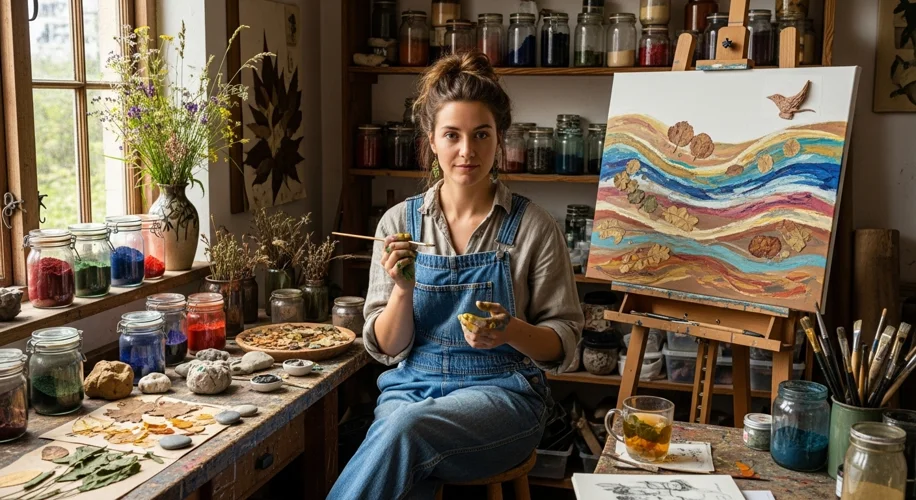Hey everyone! Anya here. Lately, I’ve been thinking a lot about how we live and our impact on the planet. As an artist who loves working with natural materials – think clay, dried flowers, and plant-based pigments – I’m always drawn to simplicity and how things are made. This got me wondering about how people lived in the past, long before all the modern conveniences and, let’s be honest, a lot of the modern waste.
It turns out, many ancient civilizations were masters of living sustainably, not out of a trendy movement, but because it was simply how life worked. They managed resources incredibly well, because they had to. There wasn’t a global supply chain to rely on!
Take agriculture, for instance. Practices like crop rotation, which we’re rediscovering today, were common thousands of years ago. Farmers would rotate different crops in the same field each season. This kept the soil healthy and fertile naturally, without needing artificial fertilizers. Think about it – smarter farming means healthier land for generations.
And waste reduction? Ancient cultures were champions of this. Nothing was truly wasted. Food scraps might become compost for gardens. Old clothes were mended, repurposed, or used as rags. Even building materials were often reused. In Roman times, they even had a saying that roughly translates to ‘waste not, want not.’ It wasn’t just a saying; it was a way of life.
Water management was also key. Societies developed clever ways to collect, store, and distribute water, often using gravity and natural channels. Aqueducts are amazing examples, but even smaller-scale rainwater harvesting was practiced widely. They understood the preciousness of water and used it wisely.
Looking at this, I feel so inspired. My own art practice is a reflection of this – trying to use materials that have a lower impact, or giving old things new life. It’s about seeing the beauty in what’s readily available and respecting the resources we use.
So, what can we learn from this ancient wisdom? It’s not about going back to living in caves, of course! It’s about bringing some of that mindful approach into our modern lives. Maybe it’s trying to compost your kitchen scraps, repairing an item instead of replacing it, or simply being more conscious about how much water you use.
It’s about appreciating the ‘less is more’ philosophy. When I create art, I often find that limiting my materials or tools actually sparks more creativity. It forces me to think differently and often leads to more unique results. The same can be true for our lives.
I encourage you to look around your own life and see where you might be able to incorporate a little more of this ancient, sustainable approach. What small change could you make today? Maybe it’s visiting a local farmer’s market, mending a favorite shirt, or simply appreciating the natural materials around you. It’s a journey, and every little step counts towards a more mindful and beautiful way of living.

